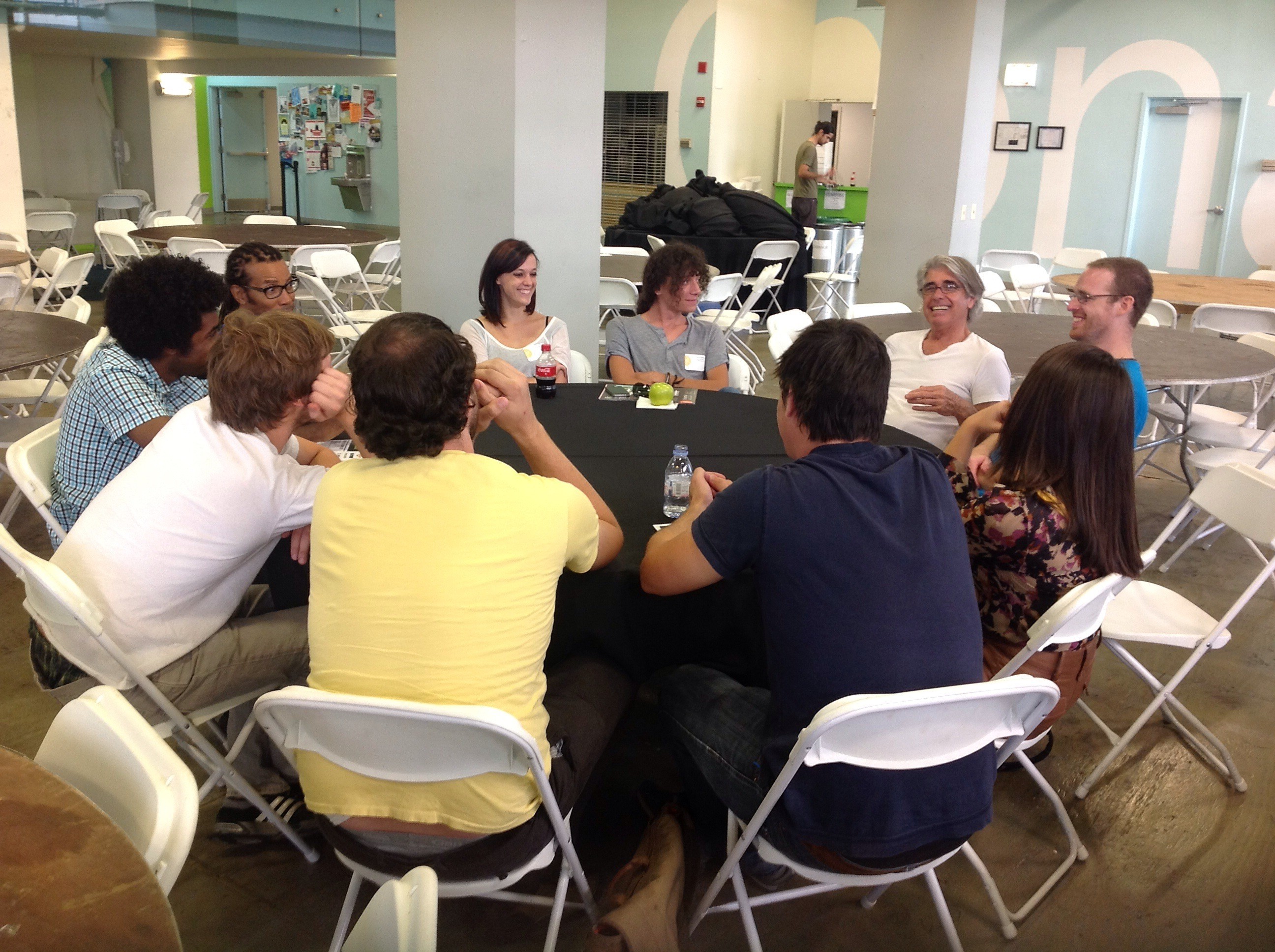
“3 Times Rule” and Other Orientation Bits
[flickr id=”7883295154″ thumbnail=”medium” overlay=”true” size=”original” group=”” align=”none”]
For all incoming graduate students at Columbia College Chicago, August 25th was the New Graduate Student Orientation. Those who come were provided with all the tools and resources they could ask for as the semester begins. There was great food, entertainment, a visit from the Portfolio Center, a Student Financial Services booth, a panel of experienced graduate students, and more. I have to say that my favorite part was the “breakout session” where we met up with David McHugh, the program director, as well as the other incoming graduate students entering the Music Composition for the Screen MFA program.
David got me even more excited for the program to start (hard to believe that was possible). He gave us some excellent advice, talked about his and Gary’s teaching methods, and announced a new addition to the team!
In our break-out session, we got a run-down of what classes are going to look like for this coming semester and what content we should be expecting. You’ll notice that classes are only on Tuesday, Wednesday, and Thursday. David and Gary aim to please, and you can’t do much better than a 4-day weekend…every weekend! I am looking forward to it. Here’s a look at my schedule:
[flickr id=”7883199258″ thumbnail=”medium” overlay=”true” size=”original” group=”” align=”none”]
David spent a good amount of time talking about the Scoring class. He has broken it up into two different sections so that half of us are in each. This is done because of his “3 Times Rule”. He regularly gives us each a 90 second clip to score, but he wants us to score it three times. It would take too long to put us all in one section, and it is a time commitment for him, but I believe there is genius behind his method (and it wasn’t until I got home and got to thinking about it that I saw how brilliant it is).
He says the first time you score the piece, you write what comes naturaly. It is usually going to be your personal clichés (the chords you like best and come naturally), but then you put all that aside. The second time, there will still be some clichés in there, but some of it will be new material. It’s the third time, though, that really makes you reach down deep inside yourself, “and it is there that you are at the sea of infinite ideas and that’s where you can find the pearls”.
That’s how he explained it, anyway, and here’s my take on it. Cliché isn’t necessarily bad. There is a reason a thing becomes cliché, as it has molded modern perceptions and expectations. I have encountered some educators that avoid the “expected” as a plague by pushing a development of an entirely individualistic sound. You get the best of both worlds here as you quickly work sifting through the “good”, finding the “new”, and creating something “excellent”.
?
So, who is the new member of the team? I guess you’ll have to wait and see. :) I’ll do a blog all about him next week.
Stay tuned and see you next week!
